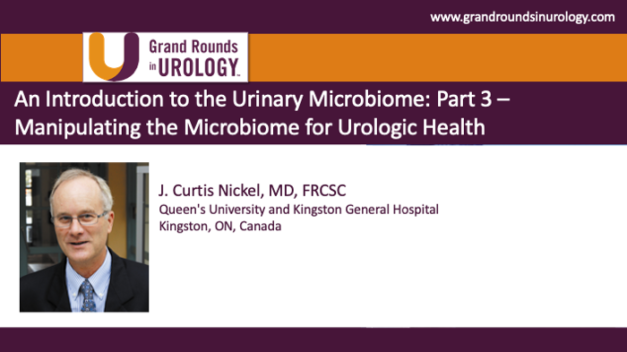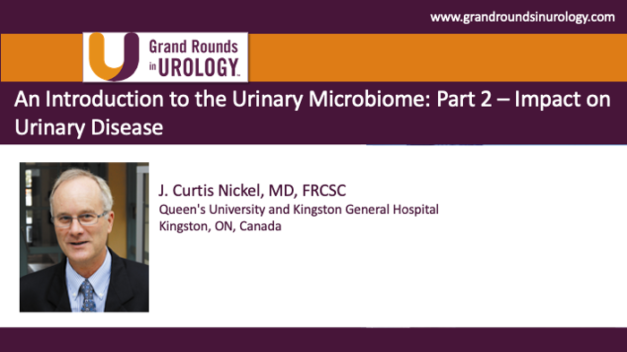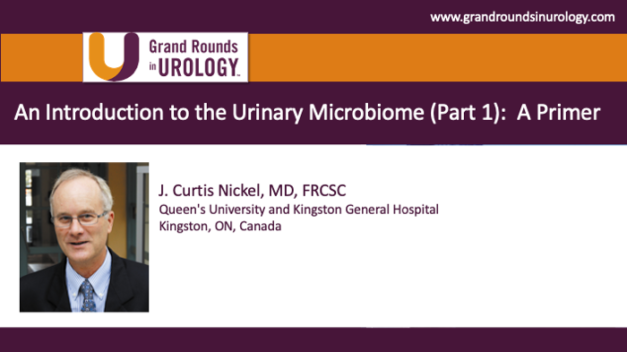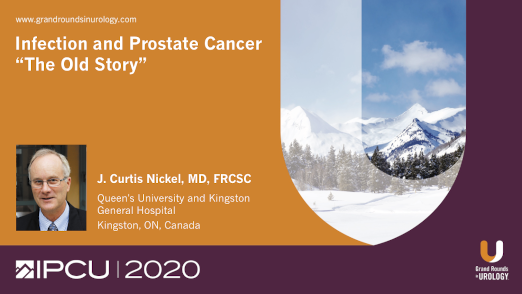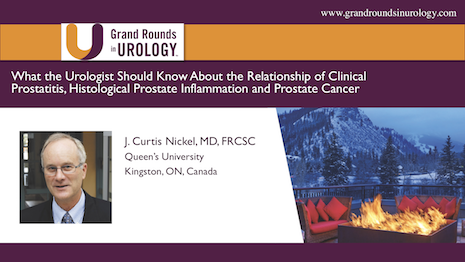An Introduction to the Urinary Microbiome: Part 3 – Manipulating the Microbiome for Urologic Health
In the third lecture of a three-part foundational series for Grand Rounds in Urology’s Next Generation Microbiome and Urologic Infections Learning Center, J. Curtis Nickel, MD, FRCSC, Professor of Urology at Queen’s University in Ontario, Canada, discusses possible ways to manipulate the microbiome to promote urologic health. He explains that, at present, there are four basic ways to positively influence the microbiome: eating a good diet, exercising, avoiding environmental pollution, and avoiding unnecessary antibiotics. Dr. Nickel also discusses various potential treatments currently being explored that involve manipulating the microbiome for managing disease, such as: gastrointestinal recolonization with Oxalobacter formigenes to treat urinary stone disease; targeting particular microbiota for cancer management; using Lactobacillus probiotics, fecal transplants, urine transplants, and a whole-cell inactivated bacteria vaccine to protect against urinary tract infections; and phage therapy. Dr. Nickel concludes that urologists do not have to always kill off bacteria, including seemingly pathogenic bacteria, but rather they need to understand how the bacteria changes in various disease states.
Read More
